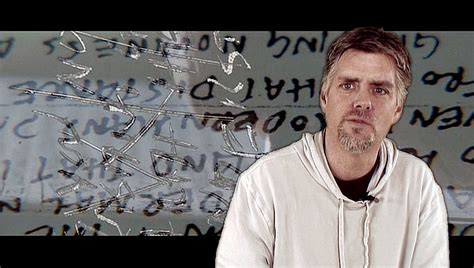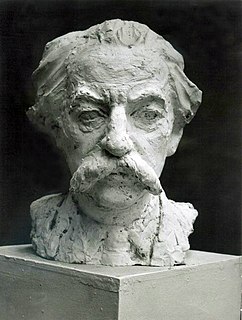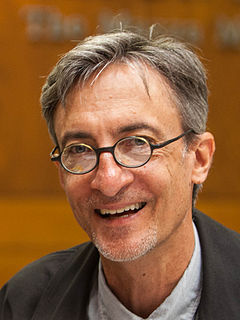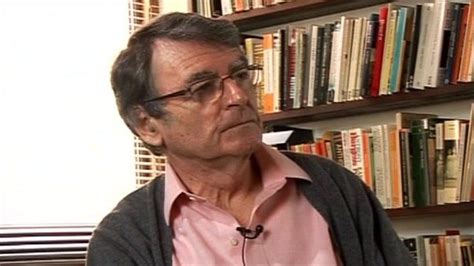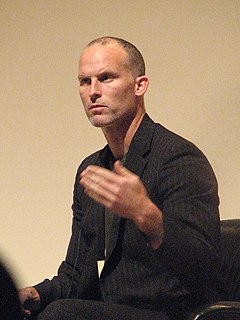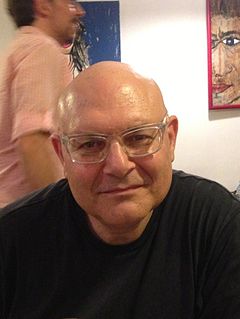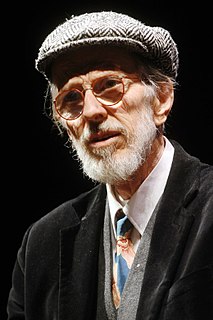Top 1200 Text Quotes & Sayings - Page 2
Explore popular Text quotes.
Last updated on December 4, 2024.
Many liberals believe in God; many conservatives do. What matters is not whether people believe in God but what text, if any, they believe to be divine. Those who believe that He has spoken through a given text will generally think differently from those who believe that no text is divine. Such people will usually get their values from other texts, or more likely from their conscience and heart.
We now know that human transformation does not happen through didacticism or through excessive certitude, but through the playful entertainment of another scripting of reality that may subvert the old given text and its interpretation and lead to the embrace of an alternative text and its redescription of reality.
Like when you pick up a book and you don't realize what type of text it is - it could be an essay, a novel, a biography - and at one point you realize you don't know where, as a reader, you want to be. Where are you going with this text? What is the goal? How are you supposed to interpret what you're reading? And people's responses vary - some dislike it, and are put off by the confusion, the lack of comprehension.
People even split up by text message, they dump each other by text. Everything seems so disposable, so throwaway, but you have to engage with that if you're writing about the modern world. You've also got all these pop references that you feel obligated to make. They're just part of the bricolage of the whole thing, whether or not these are actually significant elements themselves.
When I speak at my local church, which I try to do 35 to 40 times a year, I try in every lesson to take the Old Testament text or New Testament text and apply them to what is happening to me or how that applies to the audience that I'm teaching in a modern, fast-changing, technological world. I use headlines, interfaith and that sort of thing.
to read is to surrender oneself to an endless displacement of curiosity and desire from one sentence to another, from one action to another, from one level of a text to another. The text unveils itself before us, but never allows itself to be possessed; and instead of trying to possess it we should take pleasure in its teasing
When you hit send on a text or tweet, you lose ownership of it - but you don't lose responsibility. Every text you have sent may have been saved and could be out there waiting to be used in ways you didn't imagine. Even the most simple of posts can be used out of context, often unintentionally, and change your future.
The whole idea of action being a carrier of information is something that comes directly from theater. That's, in some ways, the one thing I've been trying to contribute. I still write things outside of architecture - not really fiction, but not nonfiction. I like dialogue as a form, because the text is only the trace of an action. The consequential information is carried in the action you choose to put on that text.
We've clearly entered a period in which the analog of text is no longer important or relevant. All text will be electronic. I accept that fact. My house has thousands of books in it, and I've started to look at them completely differently. They now seem to me to be like antiquarian objects. Their use value has become negligible to me because I'm perfectly happy to read on an e-reader.
The power of a text when it is read is different from the power it has when it is copied out. Only the copied text thus commands the soul of him who is occupied with it, whereas the mere reader never discovers the new aspects of his inner self that are opened by the text, that road cut through the interior jungle forever closing behind it: because the reader follows the movement of his mind in the free flight of day-dreaming, whereas the copier submits it to command.
So we start with an oversignifying reader. Those texts that appear to reward this reader for this additional investment - text that we find exceptionally suggestive, apposite, or musical - are usually adjudged to be 'poetic'. ... The work of the poet is to contribute a text that will firstly invite such a reading; and secondly reward such a reading.
Translation rewrites a foreign text in terms that are intelligible and interesting to readers in the receiving culture. Doing so is akin to committing an act of ethnocentric violence by uprooting the text from the language and culture that gave it life. Translating into current, standard English at once conceals that violence and homogenizes foreign cultures.
A statue of Apollo in a museum does not seem naked, but attach a tie to its neck and it will strike us as indecent ... The text is one of the components of an artistic work, albeit an extremely important component ... But the artistic effect as a whole arises from comparisons of the text with a complex set of ontological and ideological esthetic ideas.
The Text is plural. Which is not simply to say that it has several meanings, but that it accomplishes the very plural of meaning: an irreducible (and not merely an acceptable) plural. The Text is not a co-existence of meanings but a passage, an overcrossing; thus it answers not to an interpretation, even a liberal one, but to an explosion, a dissemination.
If you take text and image and you put them together, the multiple readings that are possible in either poetry or in something visual are reduced to one specific reading. By putting the two together, you limit the possibilities. Text and image don't always work together in the way music and song lyrics become part of each other.
All we can say is that, as the result of a process which went on from the fourth century to about the eighth, a standard type of text was produced, which is found in the vast majority of the manuscripts that have come down to us. At least ninety-six per cent of the extant manuscripts of the Greek New Testament are later than the eighth century; and of those only a handful preserve traces of the other types of text which were in existence before the adoption of the standard text, and out of which it was created.
I think your text [script] is everything; it's what informs you; it's what gives you the given circumstances. Then you take that and you add your own creativity and your own spin on things and you make it personal. That's what makes that character and that text unique to you, when you personalize it. I think that's where your job as an actor comes in.
French rhetorical models are too narrow for the English tradition. Most pernicious of French imports is the notion that there is no person behind a text. Is there anything more affected, aggressive, and relentlessly concrete than a Parisan intellectual behind his/her turgid text? The Parisian is a provincial when he pretends to speak for the universe.

























